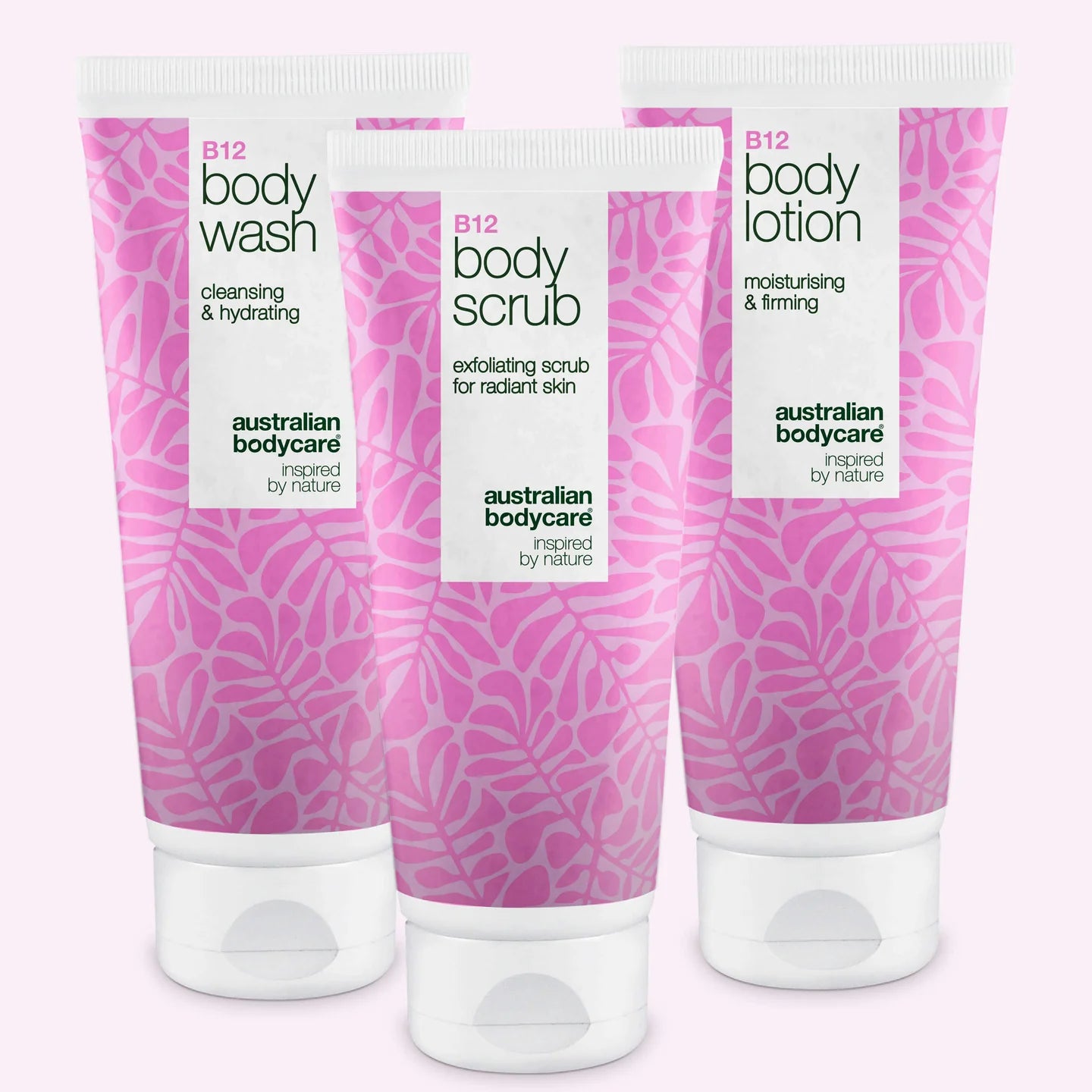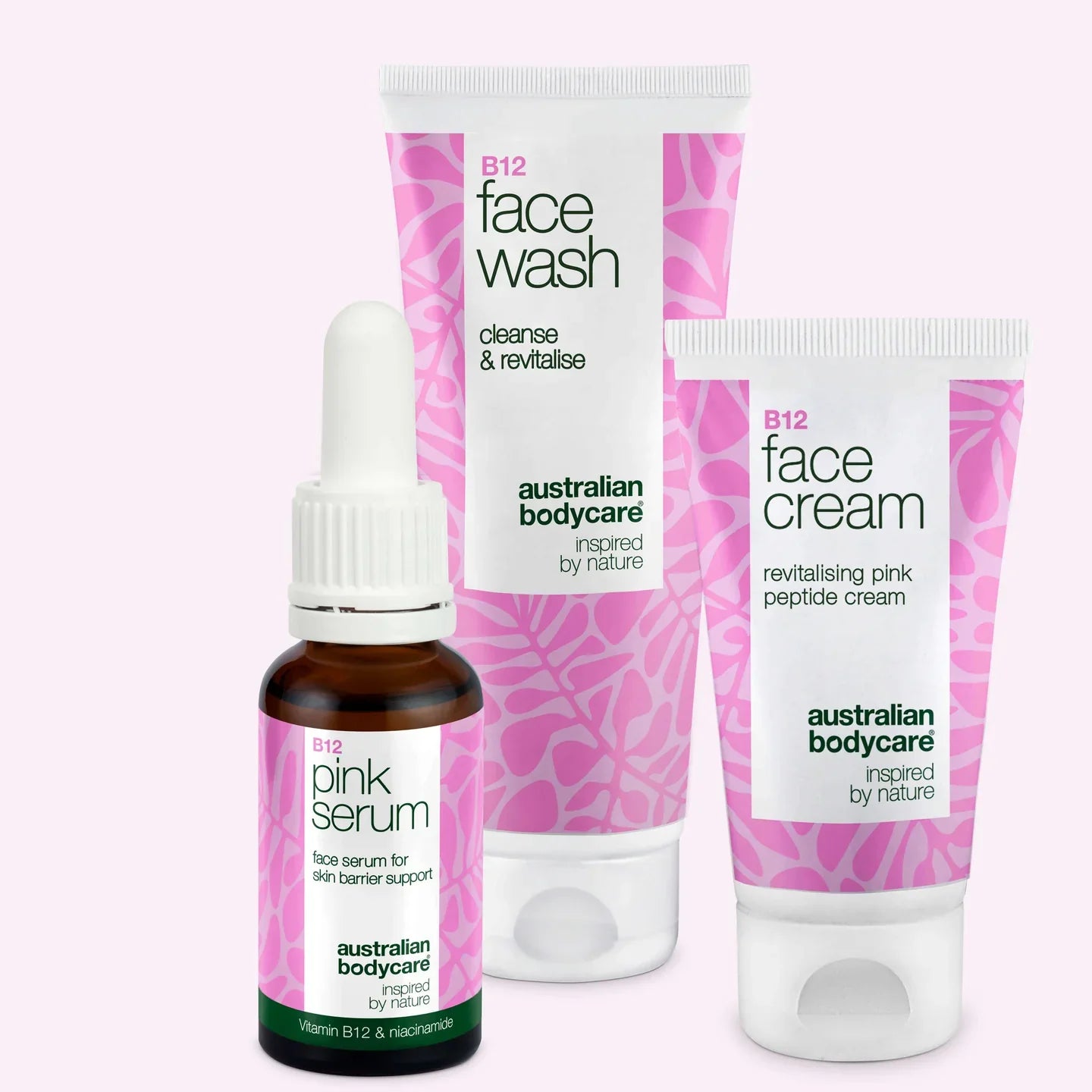Oily scalp – How to treat a greasy scalp
Many people have hair and scalp problems – both men and women. The scalp may be too greasy, or it may be too dry. Either way, it is a problem that needs treatment. Australian Bodycare’s Hair pack to care for your hair and scalp provides the help you need for a dry or oily scalp.
Table of contents
Why is my scalp greasy?
While some people struggle with a dry scalp, others have very different problems: many are troubled by an irritatingly greasy scalp. When the scalp is greasy, it often shows in the form of greasy hair. The natural reaction to greasy hair is to wash it to remove the grease. This can result in a vicious circle, however.
A greasy scalp often means that production of sebum is very high, in contrast to a low production, which shows as a dry scalp.
If you wash your hair far too often, you stimulate production of sebum in your skin. When you wash, you remove the natural layer of grease produced by the skin itself. That means your body feels the need to compensate for the missing grease by overproducing sebum.
That way, you end up with a greasy scalp and lank, greasy hair.
As with a dry scalp, you can also get a greasy scalp if you use too many styling products, which clog the pores. At the same time, a greasy scalp may in some cases be caused by hormonal changes or stress.
Treating an oily scalp
The way to get rid of an oily scalp is first and foremost to go cold turkey. Your hair has probably got used to being washed every day, and finally it gets greasy in a single day. So now you have to let your hair get used to being washed less.
Send your hair to rehab
It is going to be tough, because to begin with, you have to go around with greasy hair, until your hair has found its natural balance again. However, between washes you can use dry shampoo, which absorbs the grease from your hair. In that way you can avoid having to hide behind closed doors or wear a cap in the summer, if you don’t want to be seen in public with greasy hair.
Aim at getting your hair used to being washed about twice a week. That is plenty. In fact, your hair only really needs to be washed when it starts to smell.
Use the right products
When you suffer from a greasy scalp, it is important to use the right shampoo, and it must not be too harsh. For an oily scalp you can use Australian Bodycare Hair Clean shampoo, which is included in a series of products to help with scalp problems.
This shampoo for greasy hair removes grease and styling products from the scalp effectively, and thanks to Tea Tree Oil, it gently clears away bacteria and dirt deep down, while it strengthens the hair from inside.
You must still remember to rinse the shampoo out thoroughly, so there are no residues that can upset the natural protective layer on the skin.
Even if you have a greasy scalp, you can still have trouble with dry hair. The pack therefore contains a conditioner (Balsam), which restores the natural moisture balance in the hair, leaving it shiny and strong. You should only apply it to the ends of the hair, so that you avoid adding grease to the scalp again.
Thus the pack with shampoo works for both greasy scalp and dry hair. The final item in the pack is Scalp Cure Treatment Mask, which gives the scalp an extra caring boost.
Australian Tea Tree Oil stops bacterial growth in your scalp, and Macadamia Nut Oil gives the scalp lots of moisture and strengthens the hair roots.
Back up with healthy food
Since an oily scalp is often caused by a natural production of sebum, you can help in other ways to deal with your oily scalp. One way is through what you eat. If you are used to eating a lot of fatty food, fast food, sweets, cakes and fizzy drinks, you are encouraging production of sebum and an oily scalp.
But if you develop healthy eating habits instead, it will help to regulate the production of sebum too.
Greasy scalp and hair loss
For many women as well as men, hair loss is a serious problem. And even though it is rare for women actually to go bald, their hair can easily become thin. This is due to factors such as stress, pregnancy or hormonal changes, which can all damage the hair and cause you to lose it.
Hair loss can also be due to age. As you grow older, your hair becomes thinner quite naturally.
In fact, a greasy scalp may make it more difficult to deal with hair loss. If you have been under stress for a time, and it shows in your hair, then new hair must have a chance to grow undisturbed. However, if you have a very greasy scalp, it can hinder the growth of new hair. And then it can be difficult to get your full head of hair back.
That is yet another reason to get your greasy scalp under control, if you are struggling with hair loss as well.
Greasy scalp and itching
Although an itching scalp is often associated with dry skin, a greasy scalp can itch too. Itching scalp may be linked to greasy hair. The cause may be greasy dandruff on the scalp, since Dandruff, like a greasy scalp, is caused by overproduction of sebum.
There are different types of dandruff, however. The oily type which ‘sticks’ to the scalp, and the dry flakes that sprinkle like snow onto your blouse. So you can have dandruff either with a dry scalp or an oily scalp. Either way, try giving your scalp some extra care.
Here again, Scalp Serum is a good choice, because it contains antiseptics that strengthen the natural balance of the skin.
Divide your hair into sections, and apply the treatment evenly to the scalp. Leave it to penetrate for at least five minutes, and then wash it out thoroughly. You can also leave it to work overnight, if you really need a boost of energy.
Video: How to use scalp serum on an oily scalp
Why is my scalp dry?
A dry scalp causes problems just as much as an oily scalp. A dry scalp can be really annoying and very uncomfortable. Dryness in the scalp is cause when there is not enough moisture and nourishment in the area. Skin contains sebaceous glands everywhere – they ensure that the skin is sufficiently moisturised and strong, so it resists damage.
However, in some cases the natural sebum production stops, and the scalp becomes dry and delicate. As you get older, you produce less sebum, and thus the risk of a dry scalp increases with age. However, a dry scalp is not only a problem for older people – it can come at any age. If you do not get all the right vitamins, minerals and fluids in your diet, you are more likely to have a dry scalp. The same applies if you take certain types of medication.
The cause of dry scalp may be production of too little sebum, but it may often be due to the way you treat your hair. Using a strong shampoo can often cause a dry and irritated scalp. At the same time, styling products and a hairdryer can be hard on the scalp – so they can cause your skin to become dry.
Just as you can have a greasy scalp and dry hair, you can have a dry scalp and greasy hair. Here too, you can use Australian Bodycare’s complete hair care series, which in three steps provides the right care, both for dry or oily scalps and for dry or greasy hair, and it stabilises the natural balance.









